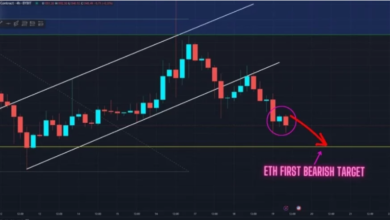Buying Gold Online: What You Need to Know Before Making a Purchase

In recent years, the allure of gold as a financial asset has surged, with many investors considering it a safe haven, especially during economic uncertainty. With the rise of e-commerce, buying gold online has become increasingly popular. However, before diving into the glittering world of digital gold purchases, there are essential factors to consider. This article will guide you through the critical aspects of buying gold online, including understanding gold types, ensuring vendor reliability, pricing, and storage options.
Understanding the Types of Gold
Before making an online purchase, it’s crucial to understand the different types of gold available. Gold comes in various forms, including bullion bars, coins, and jewelry. Gold bullion is often the preferred choice for investors as it is sold based on its weight and purity, usually 99.99% pure.
Popular bullion coins include the American Gold Eagle, Canadian Maple Leaf, and South African Krugerrand, each with its unique attributes and market value. When considering gold coins, it’s important to note that their value can be influenced not only by the gold content but also by their rarity, demand, and condition.
For example, collectible coins might appreciate in value more significantly than standard bullion coins due to their numismatic appeal. Gold jewelry, on the other hand, is often considered more of a luxury item and can vary widely in price based on design, craftsmanship, and brand reputation.
While it may contain gold, the price is also affected by the artistry and the additional materials used in the piece. Before purchasing, it’s advisable to verify the seller’s reputation and ensure they provide certificates of authenticity for the gold products. Understanding the market trends and current gold prices can also help you make a more informed decision.
Additionally, consider the implications of storage and insurance for your gold assets, especially if you plan to invest a significant amount. In summary, whether you choose bullion, coins, or jewelry, being well-informed about the type of gold you’re purchasing and the associated market factors will enhance your buying experience and investment potential.
Choosing a Reputable Vendor
When buying gold online, selecting a reputable vendor is paramount. The internet is flooded with sellers, but not all are trustworthy. Researching vendors involves checking for reviews, ratings, and customer feedback. Websites like the Better Business Bureau (BBB) and Trustpilot can provide insights into the experiences of other buyers. Additionally, it’s essential to verify the vendor’s credentials and ensure they are properly licensed to sell precious metals.
Look for certifications from recognized organizations in the industry, such as the Professional Coin Grading Service (PCGS) or the Numismatic Guaranty Corporation (NGC). These certifications can help assure you of the authenticity and quality of the gold being sold.
Furthermore, consider the vendor’s return policy and warranties. A reputable seller should offer a clear return policy that allows you to return the gold if it does not meet your expectations or if there are any discrepancies in the order. This can provide an added layer of security and peace of mind for your purchase. When making a transaction, ensure that the payment methods offered are secure and provide buyer protection.
Avoid sellers that only accept cash or wire transfers, as these methods can be difficult to trace and recover in case of fraud. Finally, compare prices among different vendors to ensure you are getting a fair deal. While it’s important to find competitive pricing, be wary of prices that are significantly lower than the market average, as they may indicate a potential scam. By taking these precautions, you can minimize risks and make a confident purchase when buying gold online.
Understanding Pricing and Market Trends
Gold prices fluctuate based on various factors, including economic conditions, interest rates, and geopolitical events. Before making a purchase, familiarize yourself with the current market price of gold, typically quoted per ounce. Websites like Kitco and GoldPrice provide real-time data and historical trends that can aid in making informed decisions.
Additionally, consider the type of gold you are interested in purchasing, whether it’s gold bullion, coins, or jewelry, as each has its own pricing structure and premiums. It’s also important to account for potential transaction fees and taxes that may apply to your purchase.
When investing in gold, keep in mind the long-term nature of such an asset, as it can serve as a hedge against inflation and economic uncertainty. Diversifying your investment portfolio by including gold can help reduce overall risk. Always consult with a financial advisor to align your gold investment with your financial goals and risk tolerance.
Payment Options and Security
When purchasing gold online, different payment methods are available, including credit/debit cards, bank wire transfers, and PayPal. It’s vital to choose a payment method that offers security and buyer protection. Credit cards often provide dispute resolution options, whereas bank transfers might not offer the same level of protection.
When purchasing gold online, different payment methods are available, including credit/debit cards, bank wire transfers, and PayPal. It’s vital to choose a payment method that offers security and buyer protection. Credit cards often provide dispute resolution options, whereas bank transfers might not offer the same level of protection.
PayPal can be a good option as it provides an added layer of security and buyer protection policies, allowing you to dispute transactions if necessary. Additionally, ensure that the website you are purchasing from uses encryption and secure payment gateways to protect your financial information.
Always verify the seller’s reputation and check for customer reviews before making a purchase to minimize the risk of fraud. Lastly, be aware of any fees associated with your chosen payment method, as these can impact the overall cost of your gold purchase.
Shipping and Insurance Considerations
After making a purchase, the next step is shipping. Reliable vendors should provide clear shipping policies, including costs, delivery times, and tracking options. It’s advisable to choose vendors that offer discreet packaging to protect your privacy and security during transit.
Additionally, it is important to review the vendor’s return policy in case the product does not meet your expectations or is damaged during shipping. Understanding the process for returns or exchanges can save you time and frustration later. If you are purchasing items that are time-sensitive, such as gifts or seasonal products, ensure that the vendor can meet your deadlines.
Customer reviews can also provide insights into the reliability of a vendor’s shipping practices and overall service quality. Always keep an eye out for any potential shipping delays, especially during peak seasons or holidays, and plan accordingly. By taking these steps, you can ensure a smoother purchase and delivery experience.
Storage Options for Your Gold
Once you’ve acquired gold, the next decision is where to store it securely. Many buyers opt for home storage, but this comes with risks such as theft or damage. Investing in a safe can mitigate these risks, but it’s essential to ensure that it is fireproof and waterproof for added security.
Alternatively, some individuals choose to store their gold in a safety deposit box at a bank or a secure storage facility. These options provide a higher level of security, as they are typically monitored and insured against loss. However, it’s important to consider the fees associated with these services and the accessibility of your gold when you need it.
Another option is to invest in a gold-backed exchange-traded fund (ETF) or other financial instruments that represent gold ownership without the need for physical storage. This can be a more convenient alternative, especially for those who prefer not to deal with the logistics of storing physical gold.
Regardless of the storage method chosen, it’s crucial to keep detailed records of your gold purchases, including receipts and valuations. This documentation can be valuable for insurance purposes and for tracking your investment over time. Additionally, consider discussing your plans with a financial advisor to determine the best strategy based on your financial goals and risk tolerance.
Tax Implications When Buying Gold
Tax implications are another aspect to consider when buying gold online. In many countries, purchasing gold may incur sales tax or capital gains tax, depending on local regulations. For instance, in the United States, the IRS classifies gold as a collectible, which means that capital gains tax may apply when selling your gold at a profit. It is important to keep thorough records of your purchases and any associated costs to accurately report gains or losses when the time comes to sell.
Additionally, some states may have specific exemptions or tax rates for gold purchases, so it is advisable to research local laws and consult with a tax professional. Understanding these implications can help you make informed decisions and avoid unexpected tax liabilities in the future. Furthermore, if you plan to invest in gold as a long-term asset, consider the potential impact of future tax changes on your investment strategy. Overall, being aware of the tax implications associated with buying gold online can enhance your investment experience and help you maximize your returns.
Read also: How a Professional Website Design Company Can Boost Your Online Presence?
Conclusion: Making Informed Decisions
Buying gold online can be an exciting endeavor, offering a tangible asset that can serve as a hedge against inflation and economic instability. However, it’s essential to approach this market with caution. By understanding the types of gold available, selecting reputable vendors, monitoring pricing trends, and considering storage and tax implications, you can make informed decisions that align with your investment strategy.





